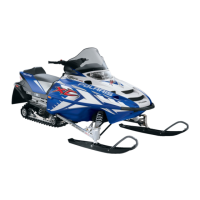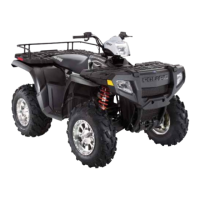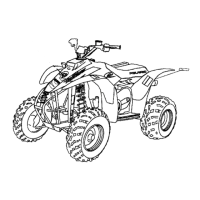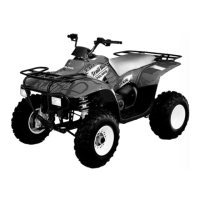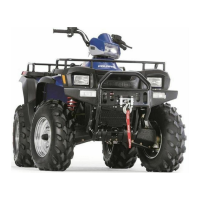7.4
CLUTCHING
DRIVE BELT
BELT INSPECTION
1. Measure the belt width and replace it if it is worn severely.
Generally a belt should be replaced if the clutches can no
longer be adjusted to provide the proper belt deflection.
• Top Edges have been trimmed on some drive belts. It
will be necessary to project the side profiles and
measure from corner to corner.
• Place a straight edge on each side of the drive belt and
measure the distance where the straight edges intersect
at the top (A,B).
2. Inspect the belt for loose cords. missing cogs, cracks,
abrasions, thin spots or excessive wear spots. Replace if
necessary.
3. Inspect the belt for hour glassing (extreme circular wear in
at least one spot an on both sides of the belt). Hour
glassing occurs when the drive train does not move and the
drive clutch engages the belt. Example would be taking off
while the track is frozen to the ground. Remember to
always warm up the track and free it from the ground.
BELT DIAGNOSIS
BELT
A
B
Table 7-2: BELT WEAR / BURN DIAGNOSIS
POSSIBLE CAUSE SOLUTION
Driving at or about engagement RPM for extended periods of time in any type of
snow condition.
Drive at higher RPM if possible. Gear the machine down. Make sure belt deflection is
at 1 1/4” to achieve optimum starting ratio.
Cold weather startups
Be patient. Warm up engine at least 5 minutes or until it readily responds to throttle
input. For the quickest most efficient drive away in extreme cold weather, take drive
belt off machine and bring it in to a warm environment. Break skis and track loose
from the snow. Engage throttle aggressively for short durations for initial cold drive
away
Towing another machine at or about engagement RPM
When possible, do not go in deep snow when towing another machine. Use fast,
effective throttle to engage the clutch. Not all machines are intended for pulling
heavy loads or other machines.
Spinning track while vehicle is stuck (high RPM, low vehicle speed, high ambient
temp. Example: 8000 RPM, 10mph actual vehicle speed and 60 m.p.h. indicated on
speedometer.
Lower the gear ratio. Remove windage plates from driven clutch. If possible, move to
better snow conditions and reduce RPM. Avoid riding in very high ambient
temperatures
Ice and snow piled up between track and tunnel overnight or after stopping for a long
period of time (enough to re-freeze the snow).
Break loose snow and ice under tunnel. Allow longer than normal warm-up. Allow
belt to warm sufficiently and increase grip ability on clutch sheaves. Use fast,
effective throttle when engaging clutch.
Poor running engine (Bog, Miss, Backfire, etc.)
Maintain good state of tune including throttle and choke synchronization. Check for
fouled spark plug(s). Check for foreign material in carbs. Make sure no water or ice is
present in the fuel tank, lines, or carburetors.
Loading machine on trailer
Use caution when loading machine. Carbide skags may gouge into trailer and prevent
drive train from spinning freely. Use enough speed to drive completely onto trailer. If
machine cannot be driven completely onto trailer, it may need to be pulled or pushed
to avoid belt wear / burning.
Clutch malfunction Check for correct clutch components, or damage on the clutch
Slow, easy belt engagement - easing on the throttle Use fast, effective throttle to engage the clutch.
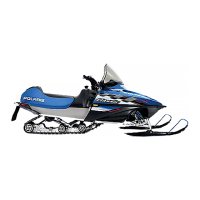
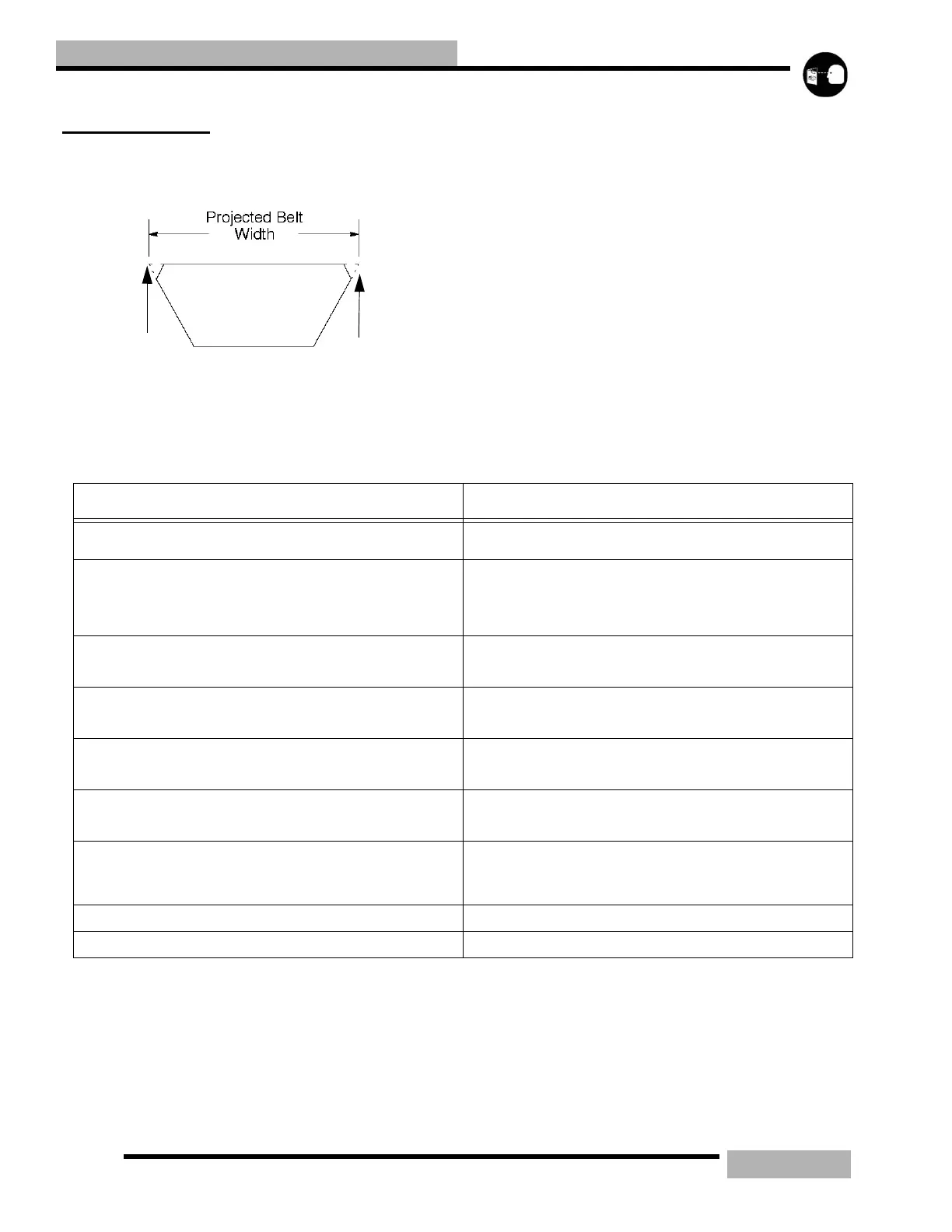